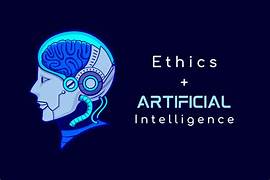The Ethical Considerations of AI in Social Credit Systems
Artificial intelligence (AI) has become a transformative force in modern society, powering systems that influence everything from healthcare to transportation. One of its most controversial applications is in social credit systems—frameworks that collect, analyze, and score individuals’ behaviors to reward or penalize them. While the idea of incentivizing good behavior and promoting societal order may appear appealing, the ethical implications of using AI in these systems are profound and warrant careful examination. This article delves into the ethical considerations surrounding AI-driven social credit systems, highlighting the benefits, risks, and potential consequences.
Understanding Social Credit Systems and AI
A social credit system is a mechanism for monitoring and evaluating individuals’ actions, assigning scores or reputations based on predefined criteria. Governments and private organizations use these systems to encourage compliance with laws, promote ethical behavior, and enhance public order. AI plays a central role in these systems by:
- Collecting vast amounts of data from multiple sources, including surveillance cameras, financial transactions, and online activities.
- Analyzing behavioral patterns to identify rule-breaking or desirable actions.
- Assigning scores based on algorithms designed to reflect societal norms or organizational goals.
China’s social credit system is one of the most prominent examples, where citizens are scored based on their adherence to laws, financial trustworthiness, and social behaviors. Although similar systems have not been widely adopted elsewhere, elements of social credit-like mechanisms exist in areas such as credit scoring, employee evaluations, and reputation management.
The Ethical Dimensions of AI in Social Credit Systems
1. Privacy Concerns
AI-driven social credit systems require vast amounts of data, often collected without explicit consent. These systems monitor individuals’ personal lives, including financial transactions, social media activity, and even physical movements.
- Violation of Privacy: Continuous surveillance and data aggregation infringe on individuals’ right to privacy.
- Data Ownership: Questions arise about who owns the data collected and how it is used. Individuals often lack control over their personal information.
- Transparency: Algorithms determining social credit scores are often opaque, leaving individuals unaware of how their actions are judged.
2. Bias and Discrimination
AI algorithms are not immune to bias, which can lead to unfair treatment within social credit systems.
- Data Bias: If the data used to train AI models reflects existing societal biases, these biases can be perpetuated or amplified. For instance, minority groups may be unfairly penalized due to systemic prejudices embedded in the data.
- Algorithmic Discrimination: Inconsistencies in scoring criteria can disadvantage certain individuals or communities, reinforcing inequality.
- Lack of Accountability: When individuals are unfairly treated due to biased algorithms, the absence of accountability mechanisms makes it challenging to seek redress.
3. Autonomy and Free Will
Social credit systems inherently manipulate behavior by incentivizing certain actions and penalizing others.
- Loss of Autonomy: Individuals may alter their behavior not out of genuine belief in societal norms but to avoid penalties or gain rewards. This raises questions about free will and personal choice.
- Coercion: The fear of losing privileges can pressure individuals into conformity, stifling creativity and diversity.
4. Surveillance and Authoritarianism
AI-powered social credit systems rely heavily on surveillance, raising concerns about their potential misuse.
- Mass Surveillance: The deployment of cameras, sensors, and online monitoring tools can create an Orwellian society where every action is scrutinized.
- Government Overreach: Authoritarian regimes may use social credit systems as tools for political control, punishing dissent and suppressing opposition.
- Chilling Effect: Constant surveillance can deter individuals from expressing themselves freely, eroding democratic values and fundamental human rights.
5. Trust and Transparency
Trust is a cornerstone of ethical AI implementation, but social credit systems often lack transparency.
- Opaque Algorithms: The complexity and secrecy of AI algorithms make it difficult for individuals to understand how scores are calculated or contest errors.
- Erosion of Trust: When citizens feel they are being unfairly judged or monitored, trust in institutions and governance declines.
6. Universal Ethical Standards
The implementation of social credit systems often reflects the cultural and political values of the region.
- Cultural Relativism: What constitutes “good behavior” may vary widely between societies, making it challenging to develop universal ethical standards for scoring.
- Global Implications: In a globalized world, differing standards can create conflicts, particularly when individuals cross borders and face incompatible systems.
Potential Benefits of AI in Social Credit Systems
While the ethical challenges are significant, proponents argue that AI in social credit systems can offer benefits if implemented responsibly.
- Encouraging Ethical Behavior: By rewarding actions such as timely bill payments and community service, social credit systems can promote societal well-being.
- Reducing Crime and Fraud: AI can detect and deter fraudulent activities, enhancing public safety and economic stability.
- Streamlined Services: Higher scores may grant individuals access to better services, such as priority in healthcare or loans with lower interest rates.
- Data-Driven Governance: Insights from social credit data can help policymakers identify and address societal issues more effectively.
Mitigating Ethical Risks
To harness the potential of AI in social credit systems while minimizing harm, the following measures should be considered:
1. Transparency and Accountability
- Open Algorithms: Governments and organizations should ensure that the algorithms used are explainable and auditable.
- Error Correction Mechanisms: Individuals should have the ability to contest inaccurate scores and seek rectification.
2. Privacy Protection
- Data Minimization: Only essential data should be collected, and it should be anonymized where possible.
- Regulations: Robust legal frameworks, such as GDPR, can safeguard individuals’ privacy rights.
3. Fairness and Inclusivity
- Bias Mitigation: AI systems should be trained on diverse and representative datasets to reduce biases.
- Equitable Criteria: Scoring criteria should be inclusive and account for different socioeconomic contexts.
4. Public Engagement
- Stakeholder Input: The design and implementation of social credit systems should involve input from diverse stakeholders, including civil society groups and ethicists.
- Awareness Campaigns: Educating citizens about the purpose, functioning, and limitations of social credit systems can foster trust and acceptance.
5. International Collaboration
- Global Standards: Developing universal ethical guidelines for social credit systems can ensure consistency and fairness across borders.
- Cross-Border Cooperation: Countries should work together to address challenges such as algorithmic bias and data security.
Conclusion
The use of AI in social credit systems represents a double-edged sword, offering opportunities for societal improvement while posing significant ethical risks. While these systems can encourage positive behavior and streamline governance, their potential to infringe on privacy, autonomy, and fairness cannot be ignored. Ethical considerations must be at the forefront of their design and implementation, ensuring that the benefits of AI are realized without compromising fundamental human rights. Through transparency, accountability, and global collaboration, it is possible to navigate the ethical complexities of AI-driven social credit systems and create a framework that respects individual freedoms while promoting collective well-being.


